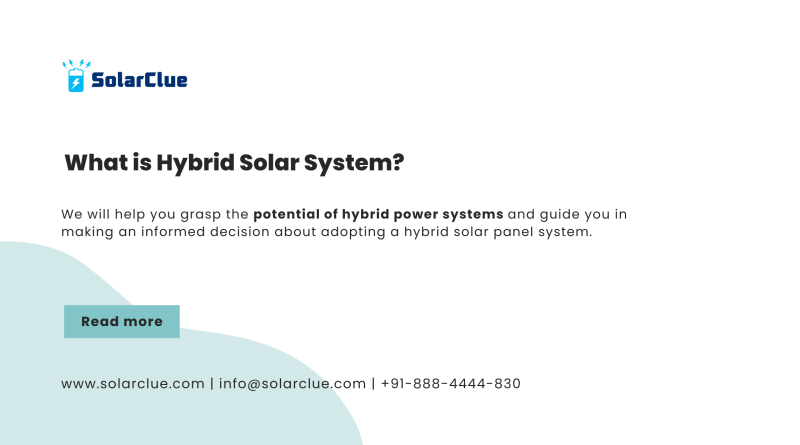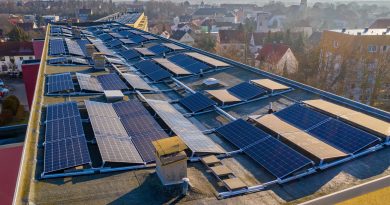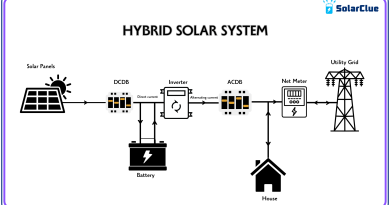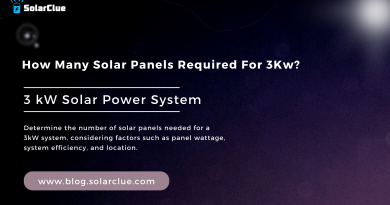What is Hybrid Solar System?
A hybrid solar system is an innovative energy solution that combines the benefits of both grid-tied and off-grid solar systems. Unlike traditional solar systems that either rely solely on grid power or operate entirely off-grid, a hybrid solar power system integrates solar panels, batteries, and the electricity grid to create a more flexible and reliable energy source. This hybrid system in solar allows for the storage of excess energy generated during the day, which can be used during the night or in case of a power outage, ensuring continuous power supply and greater energy independence.
Table of Contents
Importance of Hybrid Solar Systems
With increasing energy demands and rising electricity costs, hybrid solar PV systems have become an essential part of modern energy solutions. They provide a sustainable way to harness solar energy while offering the flexibility to store and use power when needed. The ability to draw energy from both solar panels and the grid, coupled with battery storage, makes the hybrid solar system a superior choice for those looking to optimize their energy usage and reduce reliance on conventional power sources.
This blog aims to provide a comprehensive understanding of hybrid rooftop solar systems, covering their components, advantages, challenges, and considerations. Whether you’re a homeowner, business owner, or solar enthusiast, this post will help you grasp the potential of hybrid power systems and guide you in making an informed decision about adopting a hybrid solar panel system.
Components of a Hybrid Solar System
Solar Panels
1. Types of Solar Panels Used Hybrid solar: systems typically use either monocrystalline or polycrystalline solar panels. Monocrystalline panels are known for their high efficiency and space-saving attributes, making them a popular choice for solar hybrid systems. Polycrystalline panels, on the other hand, offer a cost-effective solution with slightly lower efficiency.
2. Installation Process: Installing a hybrid solar panel system involves careful planning and positioning of the solar panels to maximize sunlight exposure. The panels are usually mounted on rooftops or ground structures and connected to an inverter and battery system.
3. Maintenance Requirements: Regular cleaning and inspection of the solar panels are essential to maintain their efficiency. Dust, debris, and shading can significantly reduce the energy output of the hybrid rooftop solar system.
Batteries
1. Types of Batteries Used: The heart of a hybrid solar power system is its battery storage. Commonly used batteries include lithium-ion, lead-acid, and flow batteries. Lithium-ion batteries are preferred for their long lifespan and high energy density, while lead-acid batteries are a cost-effective alternative.
2. Storage Capacity: Battery storage capacity varies depending on the size of the hybrid solar system and energy needs. Larger systems typically have greater storage capacity, ensuring more extended periods of backup power during grid outages.
3. Charging and Discharging Cycles: The efficiency of a hybrid solar PV system is heavily influenced by the charging and discharging cycles of its batteries. Proper management of these cycles ensures the longevity and reliability of the battery storage.
Inverter
1. Function of the Inverter: The inverter is a crucial component of the solar hybrid system, converting the DC power generated by the solar panels into AC power, which can be used by household appliances or fed back into the grid.
2. Types of Inverters Used in Hybrid Systems: Hybrid systems typically use hybrid inverters, which are capable of managing power from both the solar panels and the battery storage. These inverters are designed to optimize energy use and provide seamless power supply during outages.
3. Efficiency and Performance: The efficiency of the inverter directly impacts the overall performance of the hybrid solar system. High-quality inverters with advanced features like MPPT (Maximum Power Point Tracking) ensure maximum energy harvest and reliable power conversion.
Advantages of Hybrid Solar Systems
Energy Independence
1. Reduced Reliance on the Grid: One of the main benefits of a hybrid power system is its ability to reduce dependence on the grid. By storing excess solar energy in batteries, users can minimize grid consumption and avoid peak electricity rates.
2. Increased Self-Sufficiency: Hybrid solar systems offer increased self-sufficiency by allowing users to generate, store, and manage their energy. This is particularly beneficial in areas with unreliable grid supply or frequent power outages.
3. Lower Electricity Bills: By utilizing stored solar energy during non-peak hours, users of hybrid rooftop solar systems can significantly lower their electricity bills and achieve faster returns on their investment.
Environmental Benefits
1. Reduction in Carbon Footprint: Hybrid solar panel systems contribute to reducing carbon emissions by relying on clean, renewable solar energy rather than fossil fuels.
2. Sustainable Energy Solution: The combination of solar power and energy storage in a hybrid solar system offers a sustainable solution to meet future energy demands without compromising environmental integrity.
3. Contribution to a Greener Future: Adopting solar hybrid systems is a step toward a greener future, reducing reliance on non-renewable energy sources and promoting the use of clean, renewable energy.
Flexibility and Reliability
1. Ability to Store Excess Energy: The ability to store excess energy generated during sunny days makes hybrid solar PV systems highly flexible. This stored energy can be used during cloudy days or at night, ensuring a continuous power supply.
2. Backup Power During Outages: With a hybrid solar system, users have the advantage of backup power during grid outages, enhancing the reliability of their energy supply.
3. Adaptability to Varying Energy Needs: Hybrid solar systems are adaptable to varying energy needs, making them suitable for both residential and commercial applications.
Challenges and Considerations
Cost
1. Initial Investment: The initial investment for a hybrid solar power system can be higher compared to traditional solar systems due to the additional components like batteries and advanced inverters.
2. Maintenance Expenses: Maintenance of the batteries and inverter, along with regular panel cleaning, can add to the overall cost of a hybrid solar PV system.
3. Return on Investment: Despite the higher initial cost, the long-term savings on electricity bills and potential government incentives can make the hybrid solar system a worthwhile investment.
Technical Issues
1. Compatibility of Components: Ensuring compatibility between the solar panels, batteries, and inverter is crucial for the smooth operation of a hybrid solar panel system.
2. System Monitoring and Troubleshooting: Regular monitoring and timely troubleshooting are essential to maintain the efficiency and longevity of the hybrid rooftop solar system.
3. Professional Installation and Support: Professional installation and ongoing support are recommended to avoid technical issues and ensure the optimal performance of the solar hybrid system.
Regulatory and Policy Factors
1. Permitting and Regulations: Obtaining the necessary permits and complying with local regulations is a critical step in installing a hybrid solar system.
2. Incentives and Rebates: Government incentives and rebates can significantly reduce the cost of installing a hybrid solar panel system. It’s essential to explore available programs in your area.
3. Net Metering Policies: Understanding net metering policies is crucial for those looking to sell excess power back to the grid, maximizing the benefits of their hybrid power systems.
Conclusion
Hybrid solar systems offer a versatile and reliable energy solution by combining the benefits of grid-tied and off-grid solar systems. They provide energy independence, environmental benefits, and adaptability to various energy needs.
The hybrid solar PV system allows for energy storage, backup power, and reduced reliance on the grid, making it an ideal choice for those seeking a sustainable and reliable energy solution.
As energy demands continue to rise, exploring and investing in hybrid solar technology is a step toward a more sustainable and energy-efficient future. Consider a hybrid rooftop solar system for your home or business and enjoy the long-term benefits of clean, renewable energy.
Comparison of Hybrid Solar System Components
| Component | Function | Common Types | Key Considerations |
|---|---|---|---|
| Solar Panels | Generate electricity from sunlight | Monocrystalline, Polycrystalline | Efficiency, Space, Cost |
| Batteries | Store excess energy for later use | Lithium-Ion, Lead-Acid | Capacity, Lifespan, Cost |
| Inverter | Convert DC to AC power | Hybrid Inverters | Efficiency, Compatibility, Features |
By understanding the intricacies of hybrid solar systems, you can make informed decisions about incorporating this advanced technology into your energy strategy. Whether you’re looking to reduce electricity bills, achieve energy independence, or contribute to a greener planet, a hybrid solar panel system could be the ideal solution.




